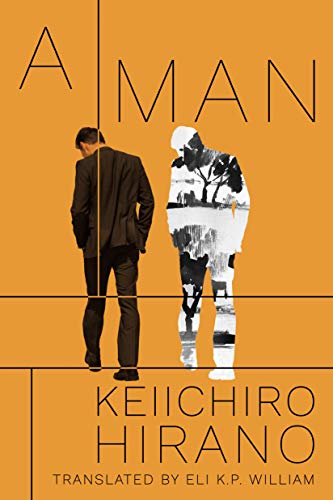
Have you ever wished to switch lives with someone?
This is the question at the center of A Man by Japanese literary writer and philosopher Keiichiro Hirano. Told from the perspective of Akira Kido, a divorce attorney with his own struggling marriage, A Man investigates the spiral of lies that is uncovered when a former client named Rie learns that her late husband had been living under an assumed identity. As Kido follows the truth in an attempt to provide Rie with closure, he finds himself increasingly pondering his own desires for a fresh start.
The complex plot is deepened further by its prologue, which wraps the narrative in hearsay. An unnamed novelist writing in the first person begins the novel with claims that he first encountered Kido while alone at a bar. Kido, likely realizing he was in the presence of a writer and wanting his story to be told, eagerly shared the activities of his recent months. Thus, the narrator begins the book: “The protagonist of this story is someone that I have been fondly calling “Kido-san” before launching into an extravagant tale that reads as something born from the union of a fable and a bar tale.
The novel, or at least this translation of it, could perhaps be described as “stereotypically Japanese” with a voice that is matter-of-fact and at times didactic. Given the importance of culturally specific systems such as the Japanese family registration system, which is critical to the story, these explanatory asides are welcome and advance the narrative without hindrance.
In spite of this narrative distance, the characters are lovable and relatable, carefully introduced so that the reader is acquainted with their traumas, desires, romances, and fears from early on in the book. At once gripping and thought-provoking, author Hirano constructs an interwoven narrative around these 3-dimensional individuals that explores the relationships between “identity” and the lives that we create for ourselves, while also introspectively reminding the reader that we are all capable of creating fiction and portraying our own truths.
While A Man perhaps leaves you with more questions than answers, it does provide a satisfying conclusion to its plot, and I would argue that it is its philosophical ambiguity that lends it its power: is any aspect of the story true? Is the story even true within the reality of the story world? Could I similarly reshape my identity in real life?
As his English-debut novel, published by Amazon Crossing, an imprint of Amazon Publishing that is focused on producing international reads for an English-speaking audience, Hirano successfully asks hard-hitting questions while providing a fast-paced and engaging plot. This fresh take on a psychological thriller is a quick and enjoyable read for when you want something with essence that can still be easily digested.
